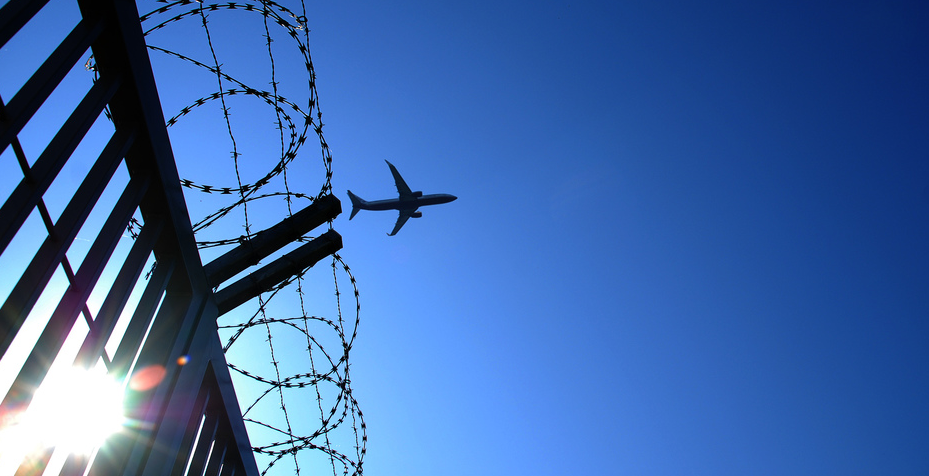
There has been masses of discussion in the last few days in the UK media about airport security in light of a failed attempt to blow up a transatlantic airliner. The UK and US have been jumping to come up with more technological solutions to the problems of airport security. The US has tightened controls for travellers from certain countries and the UK promises full body scanners.
To be quite frank I am unimpressed. Technological security is not an absolute – if the focus is on scanning the body, then flaws will be found in other places in the security of airports. Plus in the UK security procedures are slow and cumbersome as it is, let alone with the addition of more complex technology. Half the people operating the tech at UK airports give the impression that they don’t have a clue how to operate it anyway!
I’m also fascinated by this story of how security operates at Ben Gurion Airport in Tel Aviv. The Israelis are well aware of threats to security and – notably – most of the security at Tel Aviv is due to personal interaction between security personnel and passengers, and not technological solutions. Could London Heathrow possibly find people it could recruit to make a system like that work? I’ve never flown through Ben Gurion so can’t vouch for it but it gets my vote for the best overall approach to security if it’s true.
All of this has led me to reflect on overall airport design, something I always think about when I’m hanging around waiting for planes to depart or for idiots in front of me at security to realise they have coins in my pocket… so here’s my very subjective guide to how to build the perfect airport! Apart from Ben Gurion all of this comes from my personal experience.
- Security checks at London City Airport – loads of space, plenty of tables and boxes for coats, laptops etc., and clear signs. A knowledgeable business clientele knows how to play the game and everyone gets through to the gates very swiftly.
- The modern art of Oslo Gardermoen.
- The overall ambiance of Stockholm Arlanda.
- The general efficiency of Munich Franz Josef Strauss.
- The onward connections of Frankfurt International – excellent rail and road connections from beside the airport.
- The architecture of London Heathrow Terminal 5.
- The short walks to the gates at Berlin Tegel Terminal A – why don’t more airports go for hexagons?
- The view out of the window when landing at Naples Airport – Vesuvius!
I wanted to include an airport with good and clear signs to get you to the gates easily but cannot actually manage to think of one! Any ideas…?








Jon, there’s a very intersting piece on thruthout.com, by Ray McGovern and Cleen Rowley (two ex-CIA people) headed “Counter-Terrorism in a Shambles: Why?”
I read it and thought of you …..!
xkcd is my bible
Slovakia Airport presumably doesn’t win on the best security front: http://thelede.blogs.nytimes.com/2010/01/05/slovak-air-security-test-goes-very-wrong/
@Jon: yeah it had a time machine and she apparently got all the data back. Happy ending of a shocking story 🙂
The mention of the baggage “hell” at the opening of Heathrow 5 (Wikipedia) is the important point. BAA and BA have no idea of how to manage staff. They just moved people, without training or advance visits, etc, and expected them to perform “as usual” in a completely different environment.
I can imagine the same would happen if BAA tried to implement an Israeli-style security system. One, maybe two half/one hour lectures (note, no interaction, nor questions – just lectures): and, “OK guys, go do it”.
@Cat – Ace! Doesn’t quite beat my favourite XKCD – http://xkcd.com/627/
@André – Ouch… But “We were able to extract the hard drive, seemingly unscaved”! and it was a Mac that would have Time Machine…?
@Cat: this is how they handle it in Israel: http://bit.ly/6drK9s
Best response at security: http://xkcd.com/651/
Very fair point about the cost.
Now that would be an interesting one: UK airports receiving star ratings for their security?
Cost has a lot to do with it, starting from the pressures of competitive tendering to carry out such services and the (implied) threat by airlines to take their business elsewhere if they don’t get better rates. Poorly paid and demotivated staff doing vital security jobs are the result. Fancy machines can be depreciated over several years, and you might even get a bung or two from government to reduce the capital cost of buying them and sending their operators on a half-day training course. Israeli society is willing to pay the costs – in wages, effectively, to have the security services, etc. personnel – needed to operate security at this level, whereas most other countries are not.
If you’ve been on a flight between Belfast and England or Scotland in the past, you’ll have experienced much the same methods as the Israelis use. Direct and covert observation by police officers and a few simple questions face to face. Of course what worked for a small number of flights through dedicated gates would be expensive to scale up.